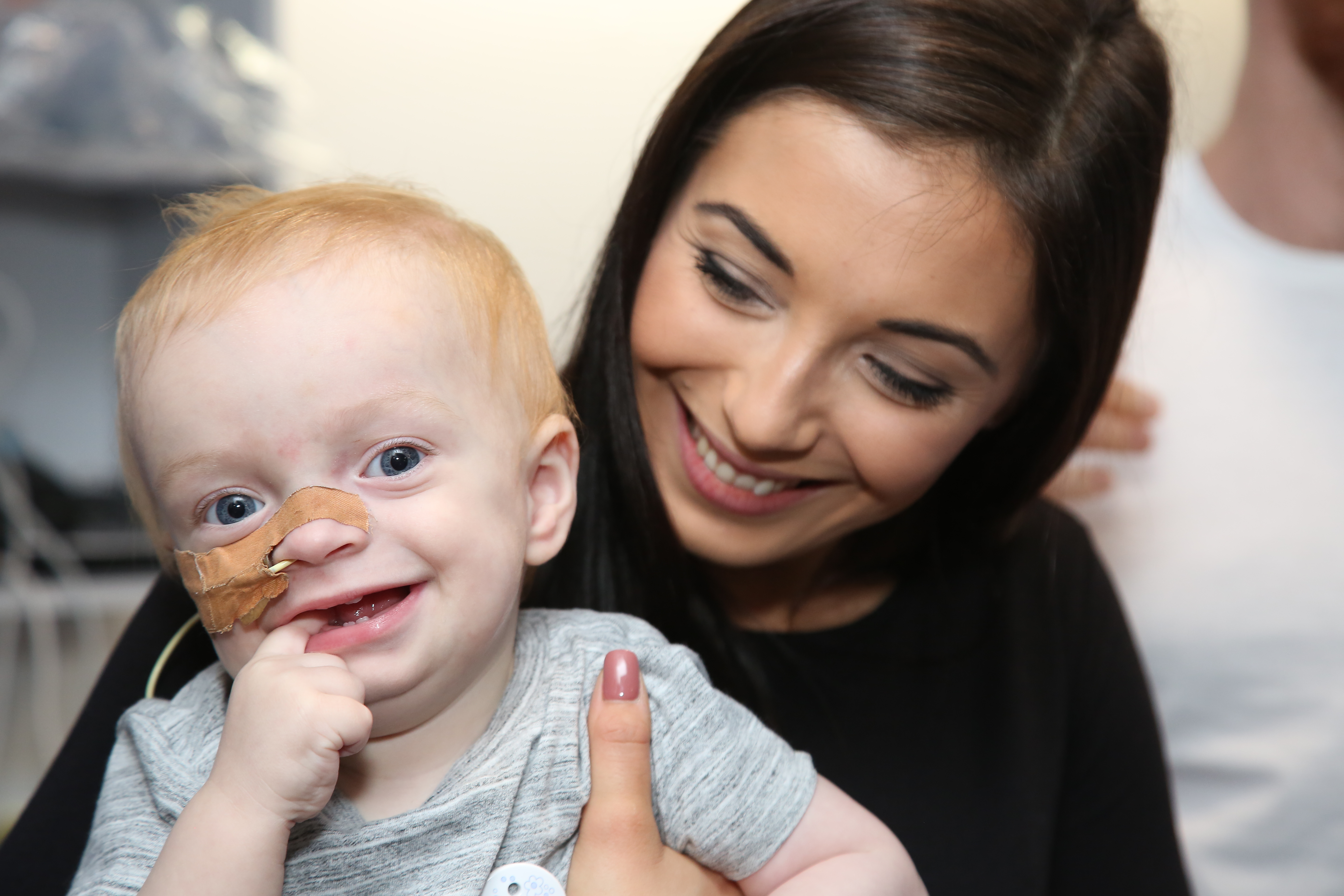We wanted to share some exciting news with you about brain cancer research funding, and let you know what this means for our pediatric brain cancer research and our Zero Childhood Cancer program.
In a landmark moment for brain cancer research the Australian Government has established a $100 million fund for brain cancer research over the next 10 years aiming to double survival rates and improve the quality of life for patients, with the longer term aim of defeating brain cancer for kids like Thomas who was diagnosed with brain cancer at four months of age (pictured below with his parents, Andrew Forrest, A/Prof Tracey O'Brien & Prof Michelle Haber).

The Australian Government will contribute $50 million under the Medical Research Future Fund and seek matching contributions from philanthropy, other governments, industry and the private sector. Cure Brain Cancer Foundation has committed $20 million and the Minderoo Foundation’s Eliminate Cancer Initiative has committed $10 million, towards this bold and important Mission.Part of this support includes investment in innovative clinical trials – including our Zero Childhood Cancer program, jointly led by ourselves & the Kids Cancer Centre at Sydney Children’s Hospital Randwick which has a major focus on brain cancer research through the work of our very own Associate Professor David Ziegler: bit.ly/brain_cancer_research. We will be sure to keep you updated with further details as the emerge.

Release Date: 27/10/2017 News Type: Announcement
$100 million towards the Australian Brain Cancer Mission
Medical research is the key to a cure for brain cancer. This is why the Australian Government is establishing a $100 million Australian Brain Cancer Mission to double survival rates and improve quality of life of people living with brain cancer over the next 10 years.
The Government will contribute $50 million towards this important endeavour through a Medical Research Future Fund (MRFF) national health mission, and is calling on philanthropy, other governments, industry and the private sector to match this investment. The Brain Cancer Mission is underpinned by a research roadmap developed by domestic and international experts in brain cancer treatment and research, and those affected by brain cancer, their advocates and philanthropic interests.
We live in a time of great advances in medical science. Some higher incidence cancers have seen dramatic improvements in survival rates, but this has not been the case for brain cancer. At 22 per cent, the survival rate for brain cancer has not changed significantly in 30 years.
Brain cancer affects both children and adults.

It is the sixth leading cause of cancer burden in Australia and disproportionately affects children. Australia loses a classroom of kids each year to brain cancer. Survival rates for brain cancer are much too low. This health mission seeks to consolidate national research, clinical and funding efforts to make a difference. Health and medical research is a focus and pillar of the long-term national health plan. Research is essential for preparing Australia for the health care challenges of the future.
The MRFF provides Australia with an opportunity to call out national missions to tackle some of these challenges, and brain cancer is the first of more missions to come.
I congratulate Mr Andrew Forrest’s Eliminating Cancer Initiative on his contribution of $10 million and a further $20 million in generous current and future fundraising efforts by the Cure for Brain Cancer Foundation to help fuel the mission. I am grateful for the contributions of these founding funding partners, which places us well on our way to the funding goal of $100 million. I welcome others to join this Mission and together help make brain cancer history.
A key objective of the Brain Cancer Mission is to ensure every patient, adult and child has the opportunity to participate in clinical trials. This will be done by investing in more clinical trials, new discovery work, further international collaborations, and expanding research platforms and technologies, and fostering the talent of our researchers.
Prioritised first investments include the establishment of an Australian arm of the GBM (glioblastoma multiforme) Agile international adaptive trial platform for adults, consolidation of the national Zero Childhood Cancer initiative for high risk brain cancer and further support for top clinical trial centres.

Moving forward, there will be opportunities for new research grant projects, scholarships, fellowships and biopharmaceutical industry partnerships to collaborate on drug discovery.
Cancer Australia will administer the mission supported by a Strategic Advisory Group. This group will comprise brain cancer patients, clinicians, researchers, co-investors and industry representatives, as well as a member of the MRFF’s Australian Medical Research Advisory Board.
The Brain Cancer Mission is bold and achievable. It builds on a number of Government initiatives including an innovative international brain cancer clinical trial, AIM BRAIN, a $13 million clinical trial grant program with a focus on rare cancers, and a commitment to establishing the southern hemisphere’s first proton beam therapy facility in South Australia.
Missions can be long journeys that include setbacks. But, with collective commitment they have the potential to deliver the impossible, offering new hope.



